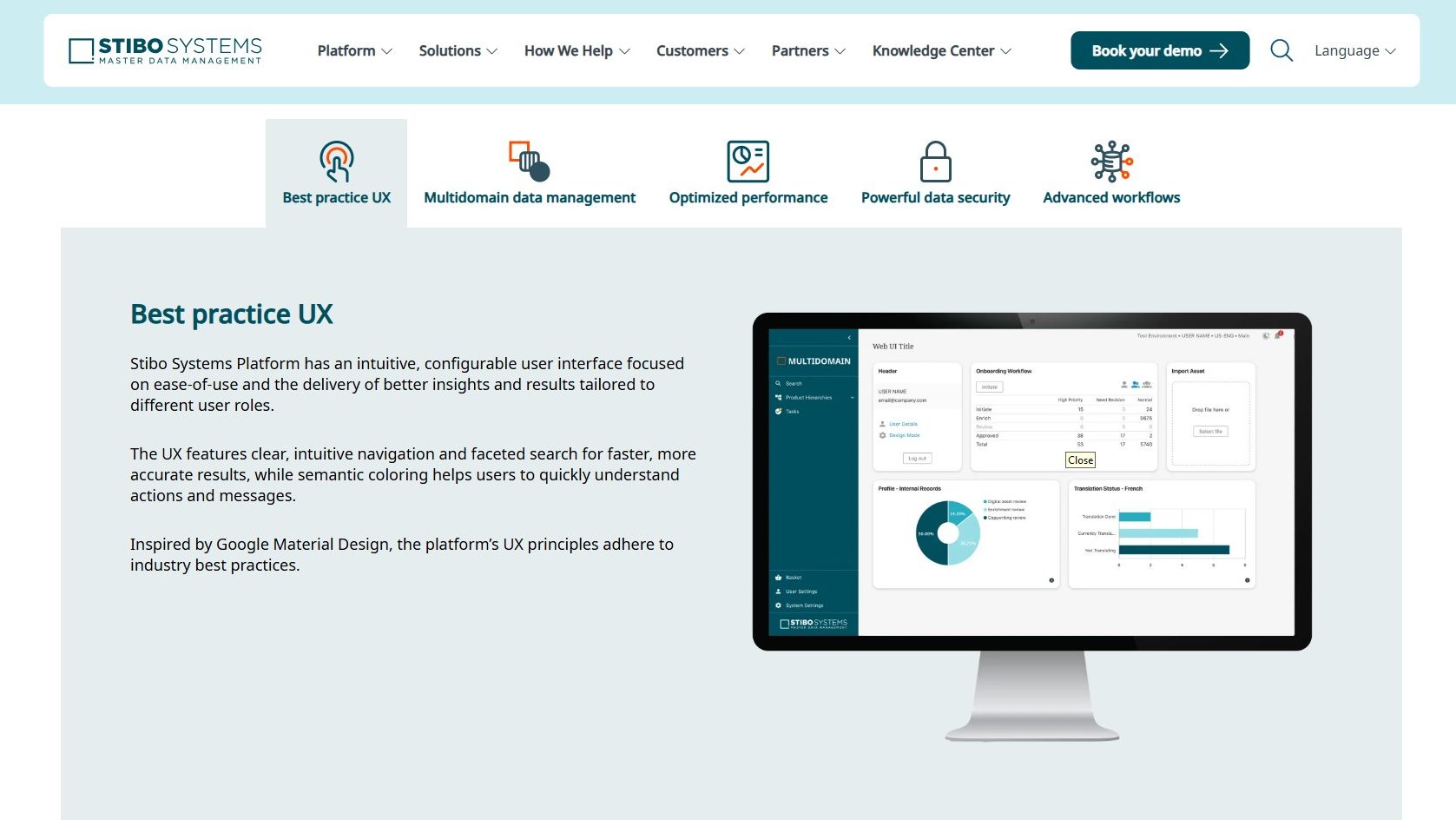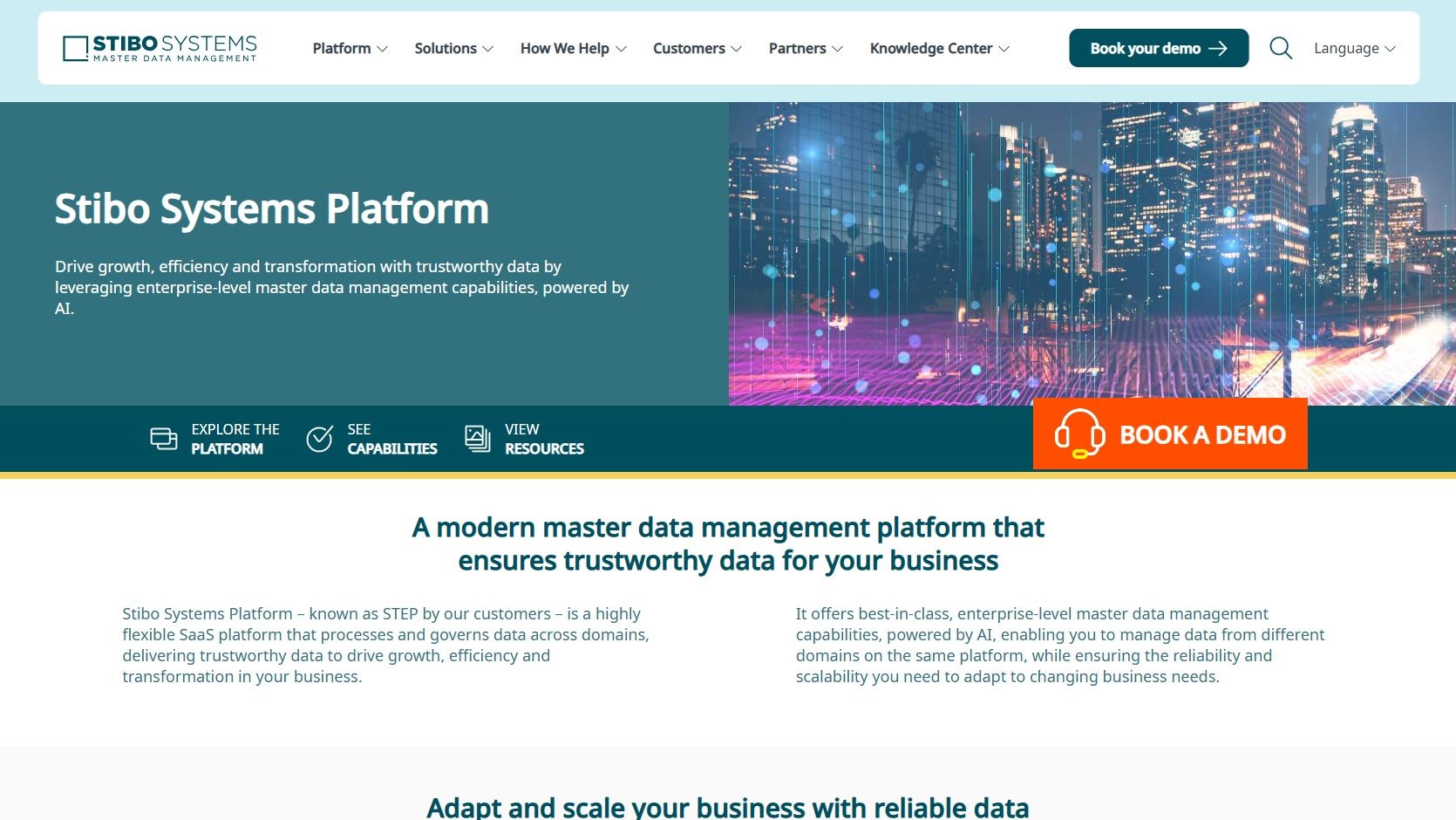Overview
Stibo STEP, a leading solution in the Data as a Service Software category by Stibo Systems, empowers businesses to centralize and manage their master data effectively. With its comprehensive tools for data governance, integration, and analytics, STEP enhances data accuracy and consistency, driving better decision-making and operational efficiency. Ready to transform your data management strategy? Explore exclusive deals. For more data solutions, check out SimilarWeb, Crunchbase, and IBM Watsonx Data.
Why Use Stibo STEP?
In the realm of master data management, Stibo STEP excels by:
- Centralized Data Management: STEP provides a unified platform for managing master data across various domains, ensuring data consistency and accuracy throughout the organization.
- Robust Data Governance: With strong governance tools, STEP helps organizations maintain data quality and compliance, reducing risks associated with poor data management.
- Seamless Integration: STEP integrates smoothly with existing systems, enabling efficient data flow and reducing silos within the organization.
- Advanced Analytics: The platform offers powerful analytics capabilities, allowing businesses to gain insights from their data and make informed decisions.
Who is Stibo STEP For?
Stibo STEP caters to a wide range of users:
- Data Managers: Data managers use STEP to ensure data quality and consistency, facilitating better data-driven decision-making across the organization.
- IT Professionals: IT teams leverage STEP for its integration capabilities, ensuring seamless data flow between systems and reducing data silos.
- Business Analysts: Business analysts utilize STEP’s analytics tools to extract insights from data, supporting strategic planning and operational improvements.
- Compliance Officers: Compliance officers rely on STEP’s governance features to maintain data compliance and mitigate risks associated with data management.
In conclusion, Stibo STEP is an essential tool for organizations looking to enhance their data management practices. Whether you’re a data manager, IT professional, business analyst, or compliance officer, STEP provides the capabilities needed to ensure data accuracy, consistency, and governance





